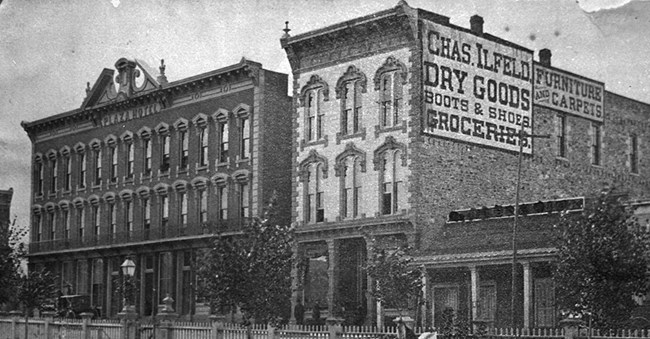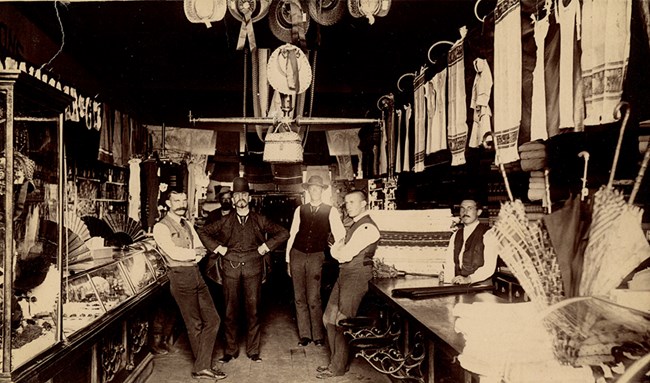
James Furlong, Courtesy of the Palace of the Governors Photo Archives (NMHM/DCA), #014719 As the U.S. Army opened forts around the territory, Jewish merchants followed as suppliers to the forts. Since Fort Union was the biggest, busiest fort, nearby Las Vegas became a center of Jewish immigration to New Mexico. Arthur Morrison was the first Jewish merchant in Las Vegas. He served as the sutler for the army post in Las Vegas before Fort Union opened in 1851. Emmanuel Rosenwald arrived in Las Vegas in 1862 and soon had a thriving wholesale business, which he operated out of his shop on the plaza in Las Vegas. Charles Ilfeld arrived in Santa Fe in 1865 with just a few dollars in his pocket. He established a business in Taos, then opened a department store on the plaza in Las Vegas, and his company became one of the biggest mercantile firms in New Mexico. Solomon Floersheim arrived in Las Vegas in 1879. After working in a dangerous job delivering wagon loads of liquor to saloon keepers following the following the construction of the Atchison, Topeka and Santa Fe , Floersheim signed on with Charles Ilfeld. Floersheim then opened his own stores in Springer and Roy, New Mexico. Many of these Jewish businesses were so-called mercantile firms. They were a combination of importer-exporters, wholesalers and retailers, and bankers. Given the primitive state of the territorial economy, the mercantiles played a critical role in supporting and maintaining the local economy. 
City of Las Vegas Museum Two of their number served as officers in the New Mexico Volunteers during the Civil War. Captain Louis Felsenthal commanded Company G of the First New Mexico Volunteers and fought at the battle of Valverde. Major Arthur Morrison raised a company of New Mexico Volunteers in Las Vegas and later served with the First New Mexico Cavalry. (Unlike most of his co-religionists, Morrison twice married into local Hispano families.) After the war, army contracts were big business in New Mexico, and the Jewish merchants garnered their share. Spiegelberg and the Staab family served as post traders for Fort Marcy in Santa Fe. Ilfeld benefitted from Fort Union contracts and Marcus Brunswick’s store in Lincoln enjoyed good business with Fort Stanton. Willi Spiegelberg was the post trader for Fort Wingate near Gallup, New Mexico. The Jewish community in nearby Las Vegas was especially influential in the Territory's business affairs, and New Mexico's first synagogue was opened in Las Vegas in 1883. |
Last updated: April 16, 2021
